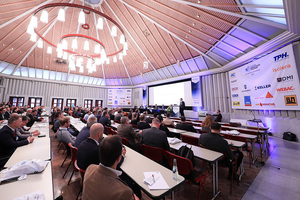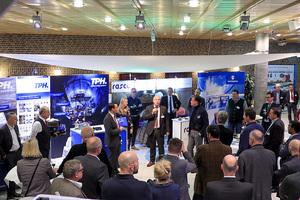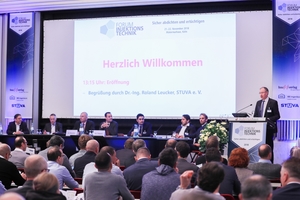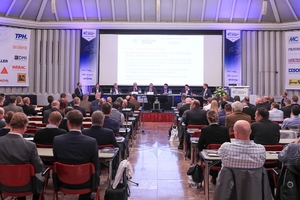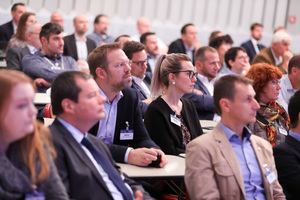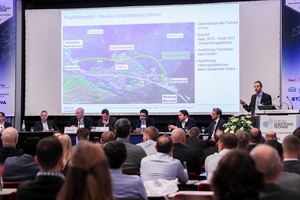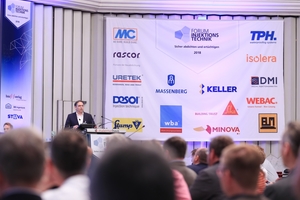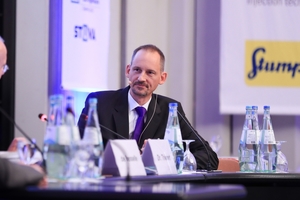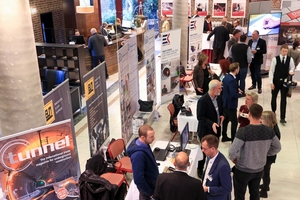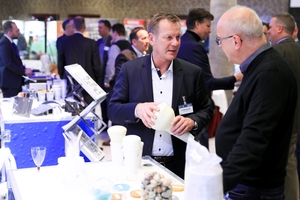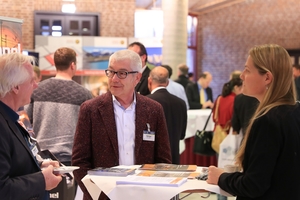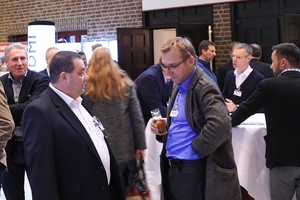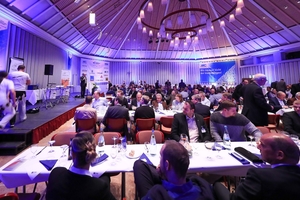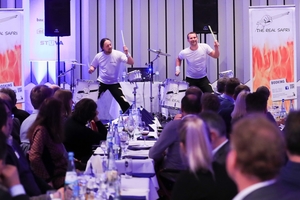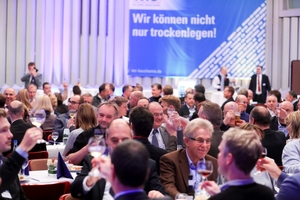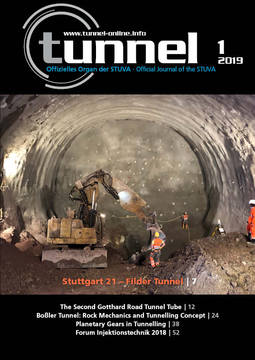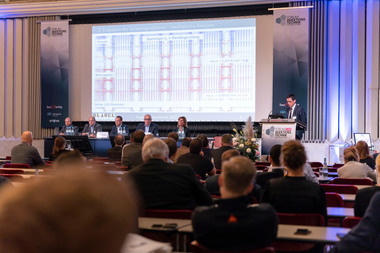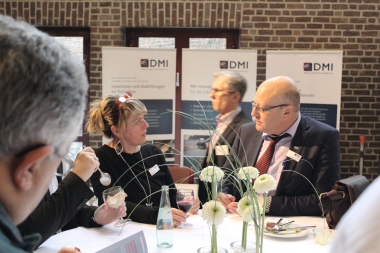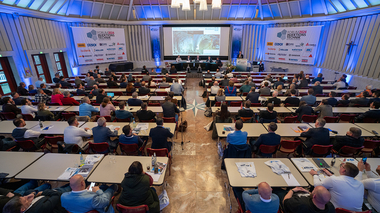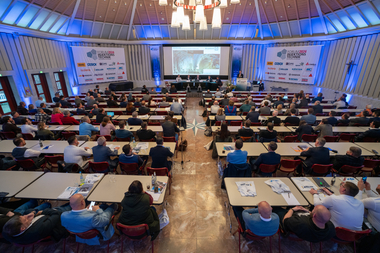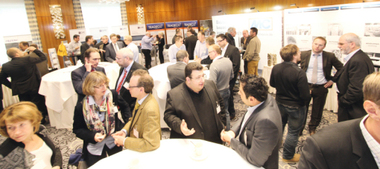Forum on Injection Technology 2018 in Cologne
The 3rd Forum on Injection Technology, which attracted 220 participants on November 21 and 22, 2018 in Cologne was a huge success – involving a series of lectures as well as networking and a get-together for the industry. On both days of the Forum at the Maternushaus, a lively exchange of views among experts took place, in the lecture hall, at the exhibitions staged by the sponsor companies as well as at the grand gala evening held for all those taking part.
As in the previous years, the Forum on Injection Technology was staged in conjunction with the partners Bauverlag, IBE-Ingenieure and STUVA (Research Association for Tunnels and Underground Transportation Facilities). 16 comprehensive specialist presentations were devoted to fields of injection technology for ground improvement and sealing as well as improving and sealing structures with practice-related examples of projects. In addition, overriding topics such as quality assurance and legal issues were tackled in a separate block of subjects. Dipl.-Ing. Jörg de Hesselle (IBE-Ingenieure) and Dr.-Ing. Christian Thienert (STUVA) were once again entrusted with the presentation and chairing the discussions. STUVA CEO Dr.-Ing. Roland Leucker was delighted to be in a position to welcome an international public – not only German experts had come to Cologne for the Injection Technology Forum but also specialists from Austria, Switzerland, Italy, Poland and the Czech Republic.
The Market Volume will increase
The market volume of injections will increase, as the field of application for this technology will become greater, Leucker commented. “Whereas sealing injections formerly represented the last resort for new buildings, now they increasingly become the focus at an earlier stage”. In the meantime, injection technology has become invaluable for refurbishing existing structures, for “older residential and office buildings reveal more and more flaws in terms of structural sealing.”
The demand for injections will also grow in structural engineering. “Many engineering structures have reached rehabilitation age – the oldest railway tunnel in Germany for instance, was built no less than 175 years ago. In general, the infrastructure needs to be refurbished”. Germany has money available for this purpose. The Federal Transport Route Plan 2030 contains a major investment package altogether worth 270 billion euros. These funds are to be used in keeping with the principle “preservation before expansion and new construction”. Towards this end, injection technology is very much in demand.
Excerpts from the Lecture Programme:
Ground Improvement
Martin Sailer, M. Sc. ad Dr.-Ing. habil. Jochen Fillibeck from the TU Munich’s Centre for Geotechnics reported together with Dipl.-Ing. Stephan Geuder from Bavaria’s Motorway Authority on shotcrete excavations for the Oberau Tunnel in Bavaria, which passes through a part-section of the highly permeable gravels of the Gießenbachtal Valley – under settlement-prone buildings given shallow overburden. The authors presented a compensation injection concept for coarse grained soils, which was successfully applied beneath a 6000 m² large industrial hall. Further papers in this block of subjects dealt with “Combined Injection Measures to stabilise and reset individual Foundations of a Storage Facility while maintaining Operations” (Stephan Gutjahr, Reiner Otterbein), “Experimental Investigations on the Injectability of Acrylate Gels in multi-grained Soils” (Yashar Forouzandeh, Conrad Boley, Götz Tintelnot), and “Digital Documentation and Data Management for Injection Measures” (Michael Ouschan, Philipp Maroschek, Severin Sabew, Leopold Winkler).
Structural Sealing
Prof. Dr.-Ing. Dietmar Mähner (FU Münster). Dipl.-Ing. Hendrik Schälicke (Prof. Dr.-Ing. Dieter Kirschke) and Dipl.‑Ing. Michael Engels (Desol) presented a technology involving minimally invasive sealing injections for structural joints with the aid of an injection drilling needle, which can be used in subterranean garages and groundwater troughs as well as in tunnels produced by cut-and-cover and conventional means and in segmental tunnel tubes.
Eidg. Dipl. ML Ruben Schmid and Dennis Wagner (Rascor) reported on sealing injections in the Eurasia Tunnel in Istanbul, which were undertaken during the tunnelling phase of the ambitious project to pass under the Bosporus. Towards this end, the challenges included high water pressure of around 11 bar as well as the high salt content of the water; both factors influenced the sealing concept and the choice of injection agents decisively.
Refurbishing Structures
In this group of subjects, Dipl.-Geol. Felix Freude and
Dipl.-Ing. Bernd Gebauer (Gebauer Ingenieur GmbH) as well as Dipl.-Ing. Johann Hechenbichler (Züblin Spezialtiefbau) reported on the multistage refurbishing of two tunnel structures using injection technology within the scope of a general overhaul of the Alz Canal in Bavaria.
Sealing the Subsoil
In their paper on subsoil sealing, Dr.-Ing. Martin Wittke and Dipl.-Ing. Dieter Schmitt (WBI GmbH) dealt with advance sealing for tunnelling measures within the scope of Project Stuttgart 21. It went on to concentrate on sealing the transition zone between unleached and leached gypsum keuper using injections with pastes, suspensions and polyurethanes.
4th “Forum Injektionstechnik”, Nov. 4–5, 2020
The fourth Forum on Injection Technology will be held on November 4 and 5, 2020. The German-language website //www.forum-injektionstechnik.de" target="_blank" >www.forum-injektionstechnik.de:www.forum-injektionstechnik.de provides details on the event; in addition, you can register in the newsletter mailing list for the 2020 Forum.

